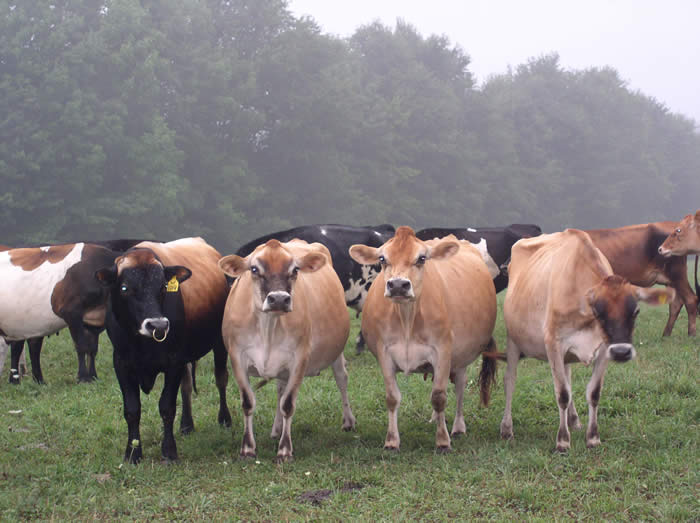Nutrient Management
The Nutrient Management Act Program
For a more information go to www.panutrientmgmt.cas.psu.edu.

The purpose of part of the Nutrient Management Act regulations is to set a level of standards that would severely reduce the risk of a farmer coming into water quality problems or violations. The standards are set as the “best management practices” for manure handling across the state. This is based on balancing the concern of what is a reasonable farm practice and still would protect the environment. Conservation Districts provide educational outreach to the agricultural community on the best way to handle nutrients on farms to minimize water pollution.
The Nutrient Management Act pre-empts local nutrient ordinances. If a local ordinance is more stringent or limiting than the statewide Act, the ordinance is not valid, when it pertains to the spreading of manure or the placement of a manure storage area. However, the Act does not effect local ordinances based on fire, safety, building or zoning codes.
Under the Act, a farmer with an approved and properly implemented Nutrient Plan can receive limited protection in the event that a complaint is filed or an incident occurs. The fact that an operation has installed Best Management Practices or (BMP’s) and is applying manure according to his approved plan, is considered to be in the farmer’s favor.
The Act particularly targets Concentrated Animal Operations or (CAO’s) which are defined as greater than 2 animal units per acre of suitable cropland or pasture for spreading manure. An animal unit is 1000 pounds of live animal weight. Any farming operation that is a CAO must have a Nutrient Management Plan for that operation by a certified Nutrient Management Specialist. A certified planner has passed a test and other requirements by the PA Department of Agriculture. The Conservation District has a list of certified planners that are interested in serving Crawford County. A farmer may also become individually certified to write their own Nutrient Management Plan for their farm.
After the Nutrient Management Plan is written it then must be sent to the Crawford County Conservation District for the review and approval process. A certified Nutrient Management Specialist will review the plan to see that it meets all of the requirements and that the manure is being used and in an efficient and economical way. If all requirements are met in the plan, then the plan is presented to the District Board for approval. Nutrient Management Plans that do not meet the requirements can be revised until they are approved.
Throughout various stages of implementation of the Nutrient Management Plan, the Conservation District is required to conduct “On site status reviews” where the required record keeping and the implementation of required BMPs are examined to insure proper implementation of the approved Nutrient Management Plan. The reviews help the Conservation District to assist the producer to stay in compliance with the Nutrient Management laws.
The records that are to be kept are:
- Accurate records of land application of nutrients, crop yields, soil tests, manure tests and tests of other nutrient sources.
- Accurate records of manure transfers (exporting Manure).
A Record Keeping Checklist and more information on record keeping guidelines of Nutrient Management Programs are available on the Pennsylvania Nutrient Management Programs web site.
There are programs available that provide assistance to farmers who are working within the provisions of the law under the Act 6 program including AgriLink, which is a low interest loan program provided by the state of Pennsylvania to provide farmers with assistance to implement BMPs that are listed in their Act 6 Nutrient Management Plans.
Although the Nutrient Management Act targets CAOs, volunteer farming operations (production and recreational) are welcomed and encouraged to participate in the Nutrient Management Program. Nutrient Management Plans can help all farmers to manage nutrients, reduce fertilizer costs, improve herd health, improve farm profits, protect the environment, and improve the image of farmers as good stewards of natural resources. Having a Nutrient Management Plan also provides opportunities for other types of programs.
For a complete listing of private planners go to panutrientmgmt.cas.psu.edu and click on Nutrient Management Specialists.

